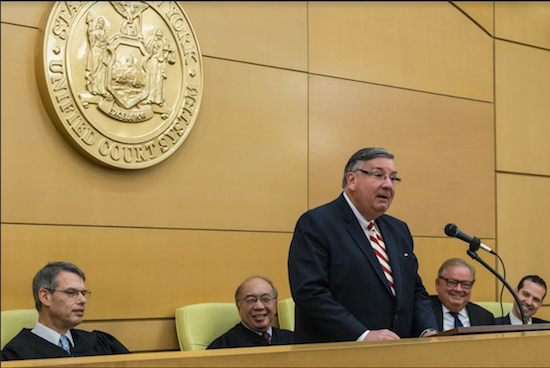Brooklyn Supreme Court celebrates the 14th Amendment at Law Day

The Brooklyn legal community held a Law Day ceremony at the Kings County Supreme Court in Downtown Brooklyn on Wednesday with a celebration of the 14th Amendment. Justice Matthew D’Emic, administrative judge of the Kings County Supreme Court, Criminal Term, was the keynote speaker at the event.
“We’re here to celebrate the many contributions of the 14th Amendment, the contributes it has made and will continue to make to protect our liberty and make us a more just country,” D’Emic said.

Brooklyn Boro
View MoreNew York City’s most populous borough, Brooklyn, is home to nearly 2.6 million residents. If Brooklyn were an independent city it would be the fourth largest city in the United States. While Brooklyn has become the epitome of ‘cool and hip’ in recent years, for those that were born here, raised families here and improved communities over the years, Brooklyn has never been ‘uncool’.